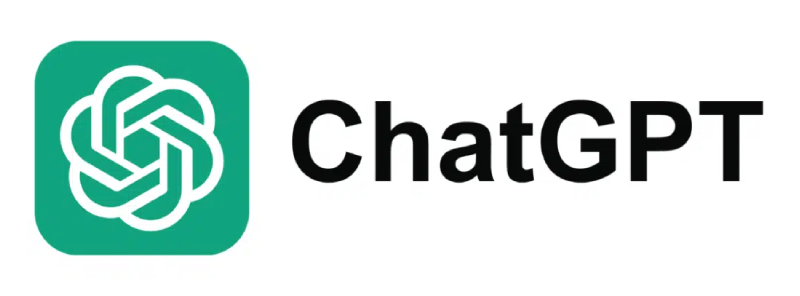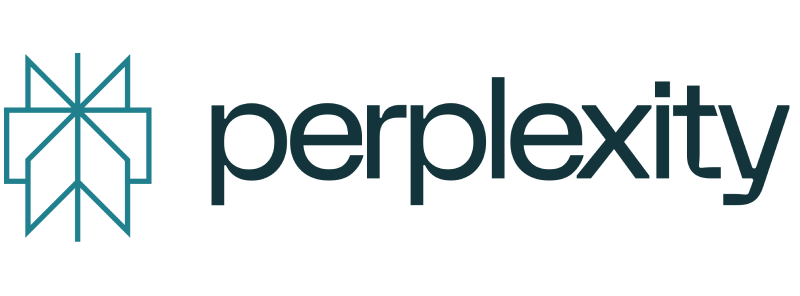Key takeaways
Estate planning often feels like a topic for “later.” You might assume it’s only relevant for the ultra-wealthy or that it’s something to deal with after retirement. But the truth is, estate planning is essential for everyone—regardless of age, family situation, or financial status.
Estate planning is not just about dividing up your assets after you’re gone; it’s about making decisions now to protect your loved ones, ensuring your wishes are respected, and avoiding unnecessary complications.
What if a sudden illness leaves you unable to make decisions for yourself? Who will manage your finances or make critical healthcare choices? Picture your family facing delays and legal disputes because there’s no clear plan for distributing your property. These challenges are avoidable with a proper estate plan.
In this post, we’ll show you the essentials of estate planning and how automation tools can simplify the process, making it accessible, efficient, and stress-free.
What is Estate Planning?
Estate planning is the process of preparing for the management and distribution of your assets, healthcare decisions, and financial affairs during your lifetime and after your death.
For individuals, this involves personal assets like savings, property, and investments. For business owners, it includes critical decisions like succession planning, protecting business assets, and reducing tax burdens to ensure continuity and stability for the organization.
It is a deliberate effort to ensure your wishes are clearly documented and legally enforceable, providing clarity and security for you and your loved ones.
Where estate planning is used:
- Ensuring care for children:
- Appoint guardians for minor children to avoid court-appointed decisions
- Specify how financial resources should be managed for their upbringing and education
- Managing property transitions:
- Simplify the transfer of real estate, valuable assets, or business ownership to beneficiaries or partners
- Avoid probate, which can be time-consuming and costly for your heirs
- Establishing healthcare decisions:
- Use advance directives to document medical treatment preferences if incapacitated
- Designate a healthcare proxy to make decisions on your behalf when you cannot
- Preserving family harmony:
- Prevent disputes by clearly outlining how assets should be distributed
- Address unique family situations, such as blended families or estranged relatives
- Minimizing taxes and costs:
- For businesses, estate planning can reduce estate taxes and protect the company’s value
- Use trusts to strategically manage and protect wealth over generations
Why estate planning matters
Estate planning is essential to protect your loved ones, honor your legacy, and ensure your wishes are carried out effectively.
- Protection for loved ones: Ensure your family is cared for and your wishes are honored
- Avoid disputes: Minimize conflicts and avoid lengthy probate processes
- Tax implications: Reduce tax burdens and maximize what’s passed to beneficiaries
- Preserve assets: Safeguard your wealth for future generations
When it comes to business owners, the absence of an estate plan means risk of legal disputes among partners or heirs, financial instability for the company, and loss of leadership continuity. A well-thought-out plan ensures the company can continue operating smoothly, preserving its legacy and protecting its employees.
Common Estate Planning Documents
The Estate planning process is not a one-size-fits-all. It involves creating a combination of documents, each serving a specific purpose to ensure your assets are handled as intended, and your loved ones are cared for.
Here is an overview of the most important documents that form the foundation of any estate plan:
1. Will
A will is the cornerstone of most estate plans. It outlines how your assets should be distributed after your death and allows you to name guardians for minor children. Without a will, the court will decide how to divide your estate, which may not align with your wishes.
2. Trust
Trusts provide more flexibility and control over how and when your assets are distributed. For business owners, corporate trusts can protect business assets, distribute profits, or ensure ownership is transferred according to your wishes
A revocable trust allows you to make changes or revoke the trust during your lifetime while ensuring that your assets avoid probate after your death. In contrast, an irrevocable trust provides greater asset protection and potential tax benefits; however, it cannot be modified or revoked once it has been established.
3. Power of attorney (POA)
This document authorizes someone to manage your financial or legal affairs if you become incapacitated. A POA ensures that bills are paid, investments are managed, and other essential financial tasks are handled in your absence.
For business owners, a specific POA can authorize someone to manage the business during temporary or long-term incapacity, ensuring continuity.
4. Advance healthcare directive
An advance directive outlines your medical preferences if you cannot communicate them yourself. This document may include instructions about life-sustaining treatment, organ donation, or other critical healthcare decisions.
5. Medical power of attorney
Also known as a healthcare proxy, this document designates a trusted individual to make medical decisions on your behalf if you are unable to do so.
6. Beneficiary designations
Certain assets, such as retirement accounts and life insurance policies, are transferred directly to beneficiaries named on the account. Ensuring these designations are up-to-date is a critical aspect of estate planning.
7. Deeds and titles
These documents govern ownership of property. Transferring property through a will can trigger probate, but using a trust or joint ownership arrangements can streamline the process.
Difference Between an Estate Plan and a Will
An estate plan and a will are often used interchangeably, but they serve distinct purposes. While a will is a critical component of an estate plan, it is just one piece of the larger puzzle.
An estate plan is a comprehensive strategy for managing both life and post-death scenarios, while a will is a critical but narrower tool within that plan. Together, they ensure your wishes are honored effectively.
How to Create an Estate Plan?
Creating an estate plan may feel overwhelming at first, but when you break it into steps, it’s much more manageable. It’s about making decisions now to protect your family, your assets, and your peace of mind in the future.
1. Take inventory of your assets
Start by listing out exactly what you own. This might seem simple, but you’d be surprised how easy it is to overlook something important. Think about both tangible and intangible assets.
- Tangible items include real estate, vehicles, jewelry, and other physical property
- Intangible assets cover things like bank accounts, investment portfolios, intellectual property, and business interests
Having a clear picture of your assets helps you ensure everything is accounted for and simplifies the next steps.
2. Define your goals
Once you know what you have, decide what you want to accomplish with your estate plan. For most people, this comes down to a few key priorities:
- Minimizing taxes: Nobody wants a big chunk of their estate to end up as tax. Tools like trusts can help reduce that burden
- Caring for loved ones: If you have young children, you’ll want to name a guardian. If you’re supporting someone with special needs, you might need a trust to ensure their financial security
- Passing down a business: If you’re a business owner, creating a succession plan ensures your company’s future is in good hands
Think about what matters most to you and let those priorities guide the structure of your plan.
3. Draft core documents
This is where your estate plan takes shape. You’ll need a few essential documents to cover all bases:
- A will to specify how your assets will be distributed and to name guardians for minor children
- Trusts to avoid probate and control how your assets are managed and distributed
- A power of attorney to let someone handle your finances if you can’t
- Advance healthcare directives to spell out your medical wishes and name a trusted person to make decisions for you
These documents work together to create a complete plan that protects your interests now and in the future.
4. Consult professionals
Even with all the information available, estate planning isn’t something you have to do alone. An attorney can make sure your documents comply with state laws, and a financial advisor can help you plan for taxes or other complexities.
Estate planning software
Estate planning is about creating key documents like wills, trusts, and healthcare directives. With the right tools, it’s no longer a time-consuming or complicated process. Here’s some estate planning software you could try:
1.Docupilot

Docupilot simplifies document creation. It offers:
- Customizable Templates: Ready-to-use templates for wills, trusts, and healthcare directives that you can adjust to fit specific needs
- Automation: Automatically fills documents using data from spreadsheets or other tools, saving hours of repetitive work
- Integration: Links with platforms like Airtable and Google Sheets to pull information directly, reducing errors and speeding up the process
- E-Signatures: Lets you send documents for signing without needing separate software
What users like about Docupilot
- Ease of Use: A straightforward interface that works well for both beginners and professionals
- Reliability: Smooth workflows and minimal glitches
- Support: A responsive customer service team that resolves issues quickly
- Cost Efficiency: Affordable pricing compared to hiring legal professionals for routine tasks
2.Trust & Will

Trust & Will offers an intuitive platform designed for users who might be new to estate planning. It’s a great choice for individuals and families who need a little help navigating the process but don’t want to involve a lawyer. Key features include:
- Step-by-Step Guidance: The platform walks you through every part of the process, ensuring you don’t miss essential details
- Specialized for Families: Provides clear options for guardianship documents, making it easy to ensure your children are cared for
- State-Specific Compliance: Automatically adjusts templates to meet the legal requirements of your state
Trust & Will is known for its user-friendly interface and transparent pricing. Many users appreciate its simplicity, which allows them to complete documents quickly without any guesswork.
3.Nolo’s Quicken WillMaker

Nolo’s Quicken WillMaker is a downloadable software designed for those who prefer to work on estate planning at their own pace. It’s especially popular with people who don’t want to rely on an internet connection for their work. Here’s what it offers:
- Wide Range of Documents: In addition to wills, the software includes tools for creating powers of attorney, living wills, and executor forms
- One-Time Purchase: Unlike subscription-based services, you pay once and get lifetime access to the software
- Simple Editing Tools: Allows you to update your documents as circumstances change, like after a marriage, birth, or move
Many users like the independence WillMaker provides. It’s a robust option for those who want a more DIY approach to estate planning.
Which should you choose?
Each of these options has its strengths:
- Docupilot is ideal if you want to automate bulk document creation, rich customization and formmating
- Trust & Will is perfect for individuals or families who want a guided, beginner-friendly experience
- Nolo’s Quicken WillMaker is great for those who prefer a one-time purchase and offline editing
Automating Estate Planning with Docupilot
Estate planning often feels like a complicated and time-consuming task, but Docupilot has revolutionized that. As a modern solution for estate planning, the tool streamlines the process of creating essential legal documents, making it faster, easier, and more accessible for individuals and professionals alike.
Here’s how it works:
- Customizable templates:
- Access pre-designed templates for wills, trusts, powers of attorney, and healthcare directives
- Customize templates to suit state-specific laws or unique estate planning needs
- Streamlined document creation:
- Generate essential legal documents quickly and accurately using automated workflows
- Eliminate repetitive manual tasks and focus on making key decisions
- Collaboration tools:
- Share documents seamlessly with legal or financial advisors
- Ensure that your estate plan meets all requirements through easy collaboration
- Secure storage and accessibility:
- Store completed documents securely for easy access whenever needed
- Retrieve and update your estate plan as life circumstances change
Take control of estate planning basics. Sign up for a free trial to explore Docupliot’s templates and experience a simpler, smarter way to plan your future.


.png)















